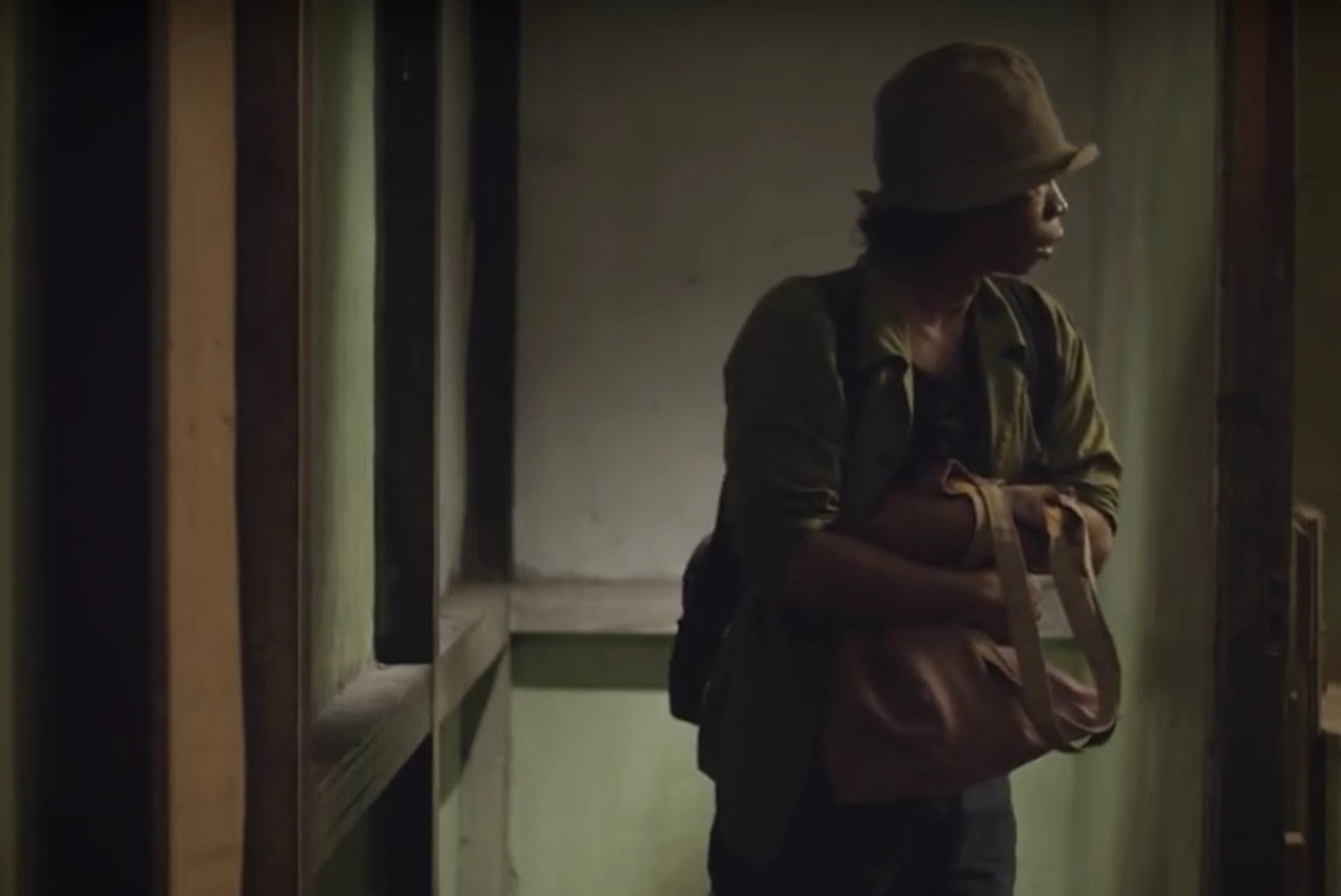Popular Reads
Top Results
Can't find what you're looking for?
View all search resultsPopular Reads
Top Results
Can't find what you're looking for?
View all search results'Istirahatlah Kata-Kata': A rebel poet demystified
Istirahatlah Kata-kata (Solo, Solitude) from director Yosep Anggi Noen is a rare example of a properly made biopic in the Indonesian film industry.
Change text size
Gift Premium Articles
to Anyone
I
n the last few years, biopics of Indonesia’s most recognized national figures have been flooding local theaters, with most of them featuring the same boring narratives and straightforward linear plots that feel like nothing but cinematic visualizations of what’s available on Wikipedia pages.
While most Indonesian biopics have mainly focused on the nation’s top national figures, Anggi in Istirahatlah Kata-Kata opts to introduce Wiji Thukul, an Indonesian poet very under-rated in terms of popularity in the nation’s literature scene who is arguably regarded as the best poet by those who are familiar with his works.
The film gives a glimpse of the dawn of Soeharto’s draconian regime in the late 1990s. To grasp the context of the movie, the audience should be familiar with the 1996 Kudatuli riot and the People’s Democratic Party (PRD).
The Kudatuli riot serves as the backdrop of Wiji’s story within a certain time period, which is considered a rare approach in Indonesian biopics, as most of them tend to take on a very long time period — usually from childhood to adulthood or death — to deliver their stories.
By taking only a certain time period of Wiji’s life, Anggi manages to deliver a more focused storyline. In a sense,
Istirahatlah Kata-Kata is a biopic made by people who know what they are trying to say and the message they want to convey.
(Read also: Wiji Thukul biopic reveals human side of missing poet)
The time period chosen by Anggi is from 1996 to 1997, when Wiji was on the run after being accused as the instigator of the Kudatuli riot.
Wiji was a most-wanted man because his poems were considered dangerous for promoting anti-government messages. He has also been accused of using words that could ignite a revolutionary fire within the Indonesian proletariats at that time.
“This God damn regime is afraid of words,” Wiji, played by seasoned theater director Gunawan Maryanto, says in one of the scenes of Istirahatlah Kata-Kata.
Wiji’s radical works and his mysterious disappearance just a couple of months before Soeharto stepped down from his 32-year long reign in 1998 has made him a legend and a myth among the Indonesian leftists and the poor until now.
However, instead of portraying Wiji as a rebellious and unbroken revolutionary poet, Anggi chooses to demystify him as a cult persona and introduces him in a more human state to the audience.
The Wiji in Istirahatlah Kata-Kata is a man in despair and paranoid over the possibility of Indonesian soldiers kicking through the door of his hideout and killing him. He constantly looks behind his back and regularly knots short ropes together so that he can use it to escape from his window if he needs to.
(Read also: Wiji Thukul: From Solo to Locarno)
Some might deem Anggi’s demystification of Wiji as ruining his cult status legacy as Indonesia’s radical rebel poet but in a way, this is exactly what makes
Istirahatlah Kata-Kata feel so refreshing and pure when compared to other Indonesian films in the biopic genre.
Through the demystification, Anggi portrays Wiji as a regular civilian fighting for something but at the same time also fearing the consequences.
Istirahatlah Kata-Kata also presents the terror and fear during a draconian regime through a unique approach. The opening scene showing an intelligence officer interrogating Wiji’s young child about his whereabouts is chilling and mortifying despite the absence of over-the-top villainous acting from the antagonist figure.
While Istirahatlah Kata-Kata is a biopic about a poet, absent are pretentious poetic words or dialogue in the film.
 Wiji Thukul, a poet and activist has been declared as missing since 1998.(tempo.co/Idon Heryatna)
Wiji Thukul, a poet and activist has been declared as missing since 1998.(tempo.co/Idon Heryatna)
Anggi, instead, chooses to use less dramatic interactions between the characters and symbols, such as the knitted works of the Last Supper painting, to present the loneliness of the life of a fugitive poet. Portions of Wiji’s poems do appear from time to time but they only serve as an introduction to complement the context of a scene. The poetic part of Istirahatlah Kata-Kata is best represented in the film’s screenplay and visualization. The camera angles and framework used by Anggi carry the feel of Wiji’s poems; solemn, harsh, romantic while at the same time fiery.
Like most film directors from Yogyakarta, Anggi also does not forget to include a lot of dark humor to convey tragedies and sadness.
A scene in which Wiji has to go to the bathroom quietly to avoid intelligence officers lurking around his house while being accompanied by his loyal wife, Sipon (Marissa Anita, who transforms herself completely from a cosmopolitan woman to a small town housewife), is both sweet and romantic despite of the grossness of the situation.
Not everyone will be happy about Anggi’s take on Wiji, the legendary poet, but one thing for sure is that Istirahatlah Kata-Kata will ignite curiosity among today’s young generation and literature enthusiasts, and encourage them to learn more about the greatest Indonesian poet, whose works have not been officially acknowledged by the state either in schools or in the formal education system.











